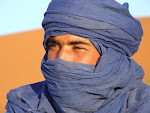
INVITO SIMPOSIO E CINEFORUM
La "Riconciliazione" australiana
Le voci indigene della docu-fiction di David Vadiveloo
venerdì 30 gennaio 2009
Sala Gagliardi, via Cavour, Noto (SR)
ore 9,30-12,30 e 15-17
L'Associazione Lacunae e il Consorzio Universitario del Mediterraneo Orientale CUMO, con il patrocinio del Dipartimento di Studi Storici dell'Università Ca’ Foscari Venezia, organizzano una giornata di studio e cineforum dedicati al "discorso culturale" della mediazione, così come si presenta nello specifico della società australiana con-temporanea.
La Reconciliation è il progetto politico di mediazione fra la minoranza indigena e lo Stato australiano "bianco", messo in atto – fra consensi e critiche – dai governi australiani dal 1991 in avanti. La Reconciliation ha portato al riconoscimento di una storia comune fatta di convivenza e di vita civile, ma anche di ingiustizie patite, adattamento e resistenza.
I film del regista australiano David Vadiveloo, insignito nel 2005 dell’Australian Human Rights Award per il suo impegno a favore dei diritti umani, nascono e illustrano in modo originale, fra fiction e documentarismo, questa importante svolta nella politica e nella cultura australiana, tanto da risultare di estremo interesse anche in una prospettiva europea.
I film – "appassionanti, visivamente splendidi, che costringono a prendere posizione" – sono un cortometraggio con ragazzini che corrono sotto il sole del deserto rosso australiano su biciclette messe insieme con i rottami della discarica; e due documentari sull'impegno degli abitanti del Kakadu National Park che riescono a fermare un'industria mineraria decisa sfruttare il territorio del parco; e su una donna delle “generazioni rubate” che torna a vivere nel bush, dopo una vita da "angloaustraliana”.
Programma
ore 9,30 Saluto di Francesco Artale (presidente del Consiglio di Amministrazione CUMO) e diSalvatore Cavallo (direttore CUMO)
ore 9,40
Bush Bikes, di David Vadiveloo
ore 9,45 Introduzione di Lorenzo Perrona (Lacunae)
ore 10:15 Franca Tamisari (Università Ca' Foscari, Venezia), Le implicazioni morali dellaReconciliation e la politica del "sentimentalismo nazionale"
ore 11,15 Silvana Tuccio (University of Melbourne), La Reconciliation nel cinema di David Vadiveloo
ore 11,45 Dibattito
Il cinema di David Vadiveloo
ore 15
ore 15,10 Trespass, (2002, 26’)
ore 15,40 Beyond Sorry, (2003, 55’)
ore 16,40 Dibattito
Franca Tamisari insegna e conduce ricerca nel settore di studi demoetno-antropologici, Dipartimento di Studi Storici, Università Ca’ Foscari di Venezia. È curatrice del libropubblicato da Jaca Book, La sfida dell'arte indigena australiana. Tradizione, innovazione e contemporaneità (Milano, 2007). Ha condotto ricerca antropologica tra le popolazioni Yolngu della terra di Arnhem nordorientale, Nord Australia. Ha pubblicato in Italia e all’estero su una serie di argomenti nell’ambito degli studi aborigeni: arte, estetica, religione e performance, con particolare attenzione alla danza, alle relazioni interculturali e all’educazione biculturale. Ha insegnato antropologia alla University of Sydney e alla University of Queensland.
Silvana Tuccio ha curato il volume Sguardi australiani. Idee immaginari e cinema degli antipodi (Le Mani, 2005) e pubblicato diversi articoli sul cinema australiano in rivista ("Studies in Australasian Cinema", Londra; "Metro", Melbourne) e in volumi editi da Le Mani (Recco), Jaca Book (Milano), Monash University ePress (Melbourne). Svolge ricerca presso la University of Melbourne.
Lorenzo Perrona ha pubblicato saggi sulla letteratura e cultura australiana in rivista (“Rivista di Studi Italiani”, University of Toronto; “Nuovi Argomenti”, Roma) e in volumi editi da Jaca Book (Milano), Rodopi (New York/Amsterdam) e ha tradotto e curato la prima edizione italiana del romanzo dello scrittore australiano Mudrooroo, Gatto selvaggio cade(Le Lettere 2005).
www.lacunae.it
3477343937









